Hopefully, you won’t make the same mistake as I did when doing a calorie deficit and just eating whatever it’s there. Yes, calories matter, and as long as you’re under your calorie norm, you will lose weight. But for how long? In this article, I will answer some of the most common questions like how many calories should I eat or does it matter what you eat in a calorie deficit?
It does matter what you eat while you’re in a calorie deficit because the macronutrient composition, volume of food, and frequency of your meals will influence how hungry you feel during the day. Choosing satiating foods can make you feel less hungry while being in a calorie deficit.
Plus, there are multiple other factors to consider when you’re on calorie restriction like your work schedule, physical activity, or usual eating times. And as you can imagine, the less hungry you feel, the more likely you will be to continue your dieting journey. So let’s see how you can optimize your nutrition and meals to reach your calorie deficit goals.
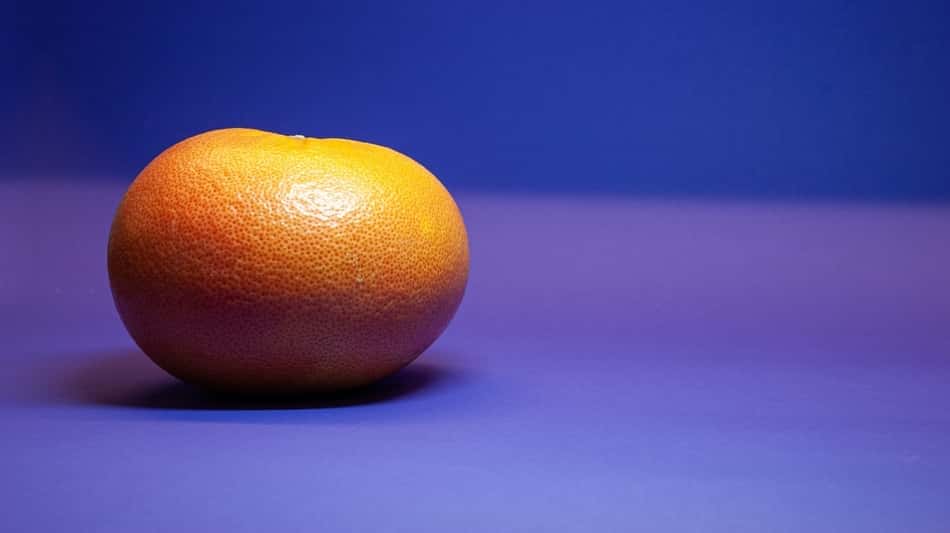
Do Macros Matter In A Calorie Deficit?
Generally, macros do matter in a calorie deficit because choosing the right ratio of your proteins, carbohydrates, and fats has an impact on hunger and appetite. Each macronutrient provides a unique set of feedback that regulates satiety mechanisms in the stomach and intestines.
That’s what I’ve noticed from doing calorie deficit myself, and from working with a number of clients. People’s results vary mainly because of the food they eat. When you can eat fewer calories you need to choose meals that still feel full.
That’s it.
Let’s start with the proteins because they are the ones that impact your satiety the most.
Proteins In a Calorie Deficit
A study done by researcher Sanne GriffioenRoose documented 37 people eating the same amount of calories for 14 days but were divided into two groups:
- Group A (low protein diet)
- Gropu B (high protein diet)
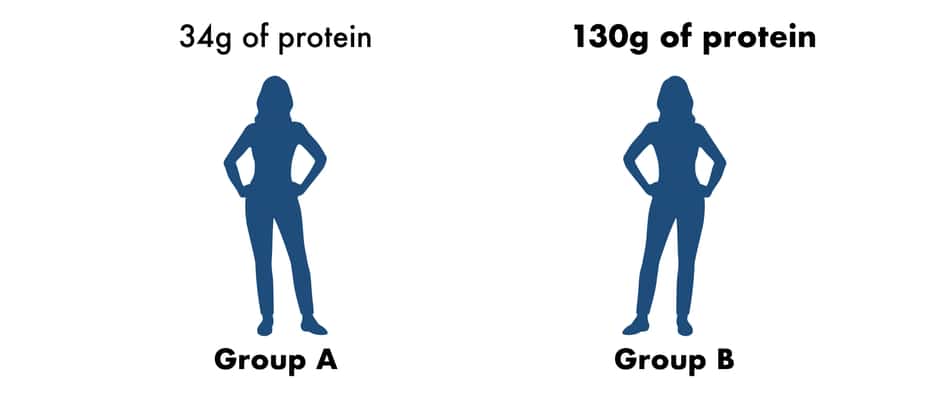
Group A was getting around 0.5 grams of protein/kg per day, where group B was eating around 1.9 grams of protein/kg per day.
Each day, group A reported significantly more hunger, less fullness, and experienced more appetite for something sweet (source).
So why proteins play such an important role in satiety? Several studies present the concept of protein-satiety threshold or satiety “ceiling effect” related to the concentration of amino acids. In short, the more amino acids you eat, the sooner you will feel satisfied and full.
According to Dr.Heather Leidy, an Associate Professor at the University of Texas at Austin proteins are the key. She said – “Several meta-analyses of shorter-term, tightly controlled feeding studies showed greater weight loss, fat mass loss, and preservation of lean mass after higher-protein energy-restriction diets than after lower-protein energy-restriction diets” (source)
Another incredible study was done by David S Weigle from the University of Washington School of Medicine in Seattle where they documented 19 healthy adults eating the same 2000 kcal diet separated into three 4 week sections.
- First 4 weeks all 19 participants were eating 15% of the total calories from protein. The food was pre-measured and all people were asked to eat everything that is provided.
- Second 4 weeks all 19 people were eating 30% of the total calories from protein. As before, food was prepared and everyone was instructed to eat until the food is gone.
- In the last 4 weeks, the diet was unchanged. All 19 participants were getting 30% of the total calories from protein with a little caveat.
Everyone was given 2300 kcal, instead of 2000 kcal per day but sneaky researchers asked them not to eat everything, but instead to eat when physically hungry and stop eating when satisfied.
You can see on the graph how the 12 weeks trail look like.

Throughout the whole 12 weeks, everyone was being measured on the regular basis. After first 4 weeks, all participants managed to maintain their weight, but no weight loss occurred.
- After the second 4 weeks, only the metabolic rate changed, but there was still no significant change in either weight or body fat percentage.
- After the last 4 weeks, all participants lost a significant amount of weight, lowered their body fat percentage, lowered total calorie intake, and increased their metabolic rate at the same time.
So all the weight loss happened in the last 4 weeks despite having access to more calories. All the participants were asked to do was eat when hungry and stop eating when no longer hungry (source).
You can see it here in the graph.
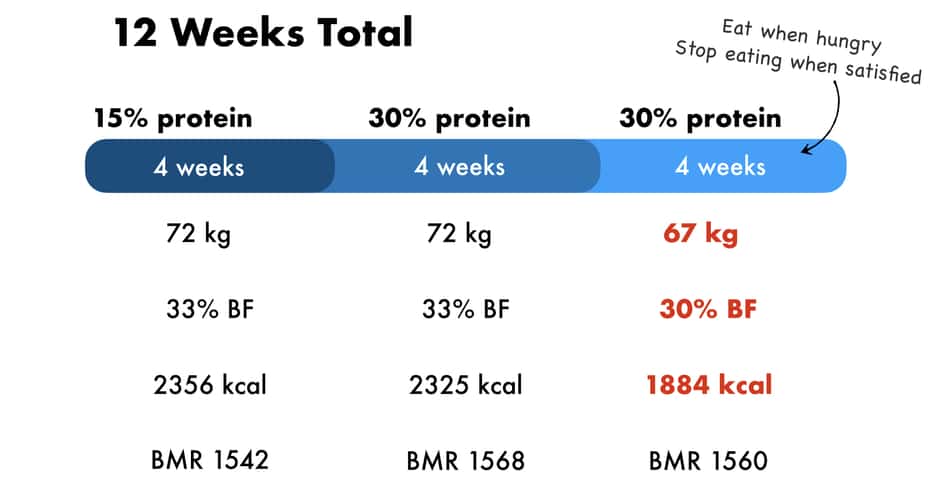
What is the takeaway from those studies?
- When you’re in the calorie deficit it does matter what you eat. A high protein diet will keep you fuller for longer so you can easily eat fewer calories.
- Instead of eating till you finish all the food that is available, listen to your body signals and cues.
Let’s move on to the next macronutrient, carbs.
Do Carbs Matter In A Caloric Deficit?
In general, carbs do matter in the calorie deficit because the composition of the meal can influence hunger, satiety, total food intake, and body weight. The current best dietary advice for calorie restriction is to consume minimally processed carbohydrates with high fiber content.
Carbs are generally divided into two sub-groups. Simple and complex. Simple carbs are stripped from fiber which makes it easier and quicker to be absorbed. Complex carbs have more fiber, therefore it takes time to extract glucose from the food.
Let’s use rice as an example. In the picture, you can see a comparison of white rice and brown rice.
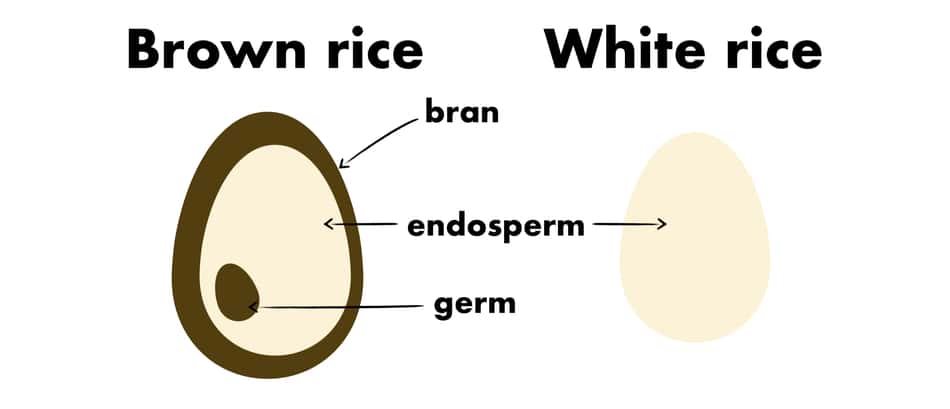
Fiber and germ are removed from white rice during the harvesting. This will make it so much easier for enzymes to digest and release glucose into the blood. Where on the other hand, in the brown rice the bran and germ are interconnected which makes it longer for the body to break down.
Fiber has 2 primary effects on food and digestion.
- Traps the nutrients in food
- Extends the time of absorption
So eating carbs with a higher fiber content requires time and effort. This extended duration gives enough time for signals that kick starts satiety mechanisms and promotes the feeling of fullness (source).
Cool.
Same thing when you eat slowly. The longer you chew your food and stretch the duration of your meals, the more full you will feel full.
Another factor is the glycemic index. Simple carbs usually have a high glycemic index, which can increase hunger and promote overeating. Complex carbs have usually a medium-low glycemic index, which suppresses appetite and promotes weight loss.
A study was done by Dr.Pasman from the Department of Nutritional Physiology in the Netherlands where they compared the effect of two breakfasts – one with simple carbs and one with complex carbs.
| Simple Carbs | Complex carb |
|---|---|
| white bread 2 slices | rye bread 2 slices |
| fruit-flavoured sprinkles | currant bread 2 rolls |
| low-fat margarine | low-fat cheese spread |
| milk | low-fat margarine |
Immediately after breakfast, participants were measured every 30 minutes to assess their blood and asked how they feel with regards to hunger and satiety.
The results showed that the group with a simple carb breakfast had much higher glucose after the first 30 minutes and significantly higher insulin immediately after food intake (source).
When it comes to satiety, complex carbs group experienced much lower hunger and suppressed appetite, even up to 4 hours after breakfast.
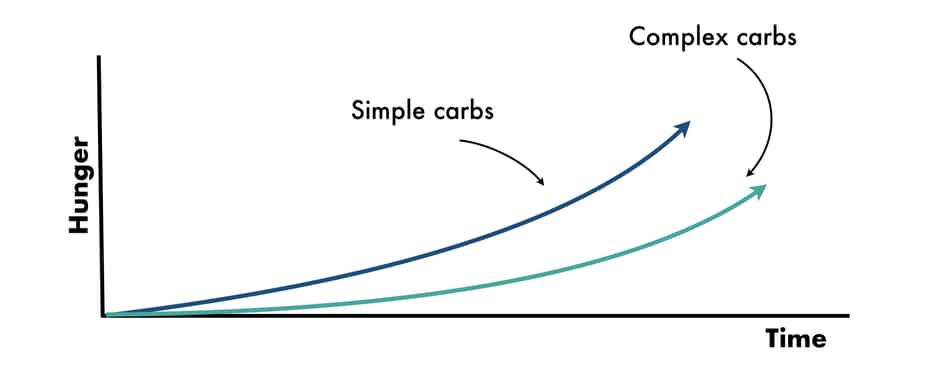
But it’s not all black and white. Some complex carbs also happen to have a high glycemic index, like potatoes. So what does this means? Should you avoid eating potatoes while being in the calorie deficit? Not at all.
Potatoes are considered as high starchy carbs with high GI but at the same time, they have the highest satiety score. I always thought that potatoes have tons of carbs and therefore they are not good for me.
Big mistake.
The most important factor is the way you eat potatoes. It a big difference when you have a baked potato with butter, cream, and extra fat, versus without any additional fat.
In general, fats do increase the appetite by increasing palatability. The more fat you add to the food, it will taste better. But we also tend to eat more of it and feel more hungry after.
Let me show you some evidence.
A study done by A Margareta Leeman compared satiety from eating boiled potatoes, mash potatoes, and french fries. The results, as you can see, showed a significant difference between boiled potatoes and french (source).
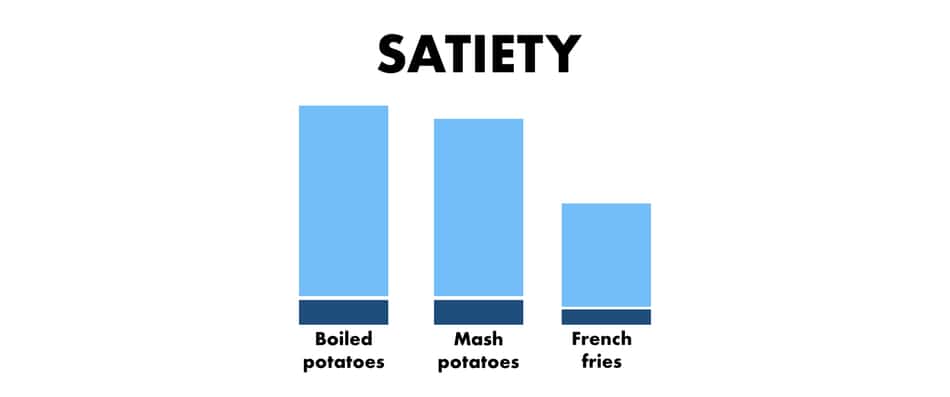
This means eating potatoes will keep you full and can suppress appetite as long as you don’t add extra fat. Do you know what is even more interesting? In the same study results on glycemic index showed that french fries had a much lower score, comparing to boiled potatoes.
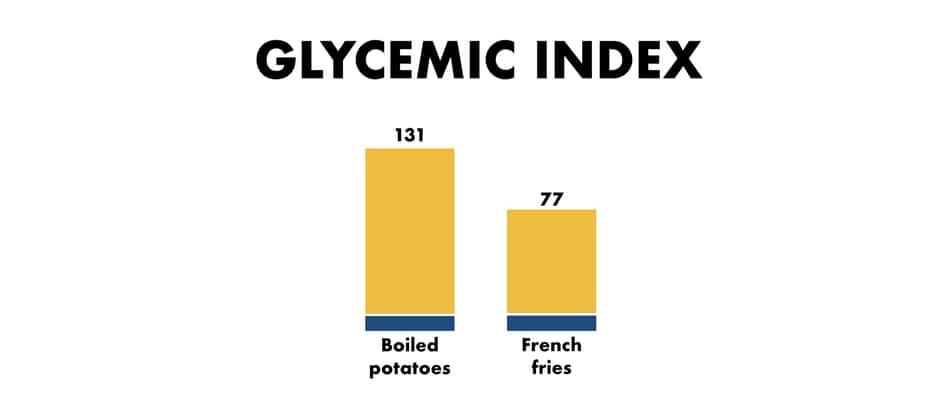
So despite extra high GI score, boiled potatoes lead to higher satiety and lower food intake. That’s why choosing foods only by their GI score can be misleading.
Before we move on to fat, let me show you the last piece of research that compared eating carbs versus drinking carbs. Dr.DiMeglio from the Purdue University studied two groups of people.
- Group A were eating 450 kcal of jelly beans
- Group B were drinking 450 kcal of regular soda
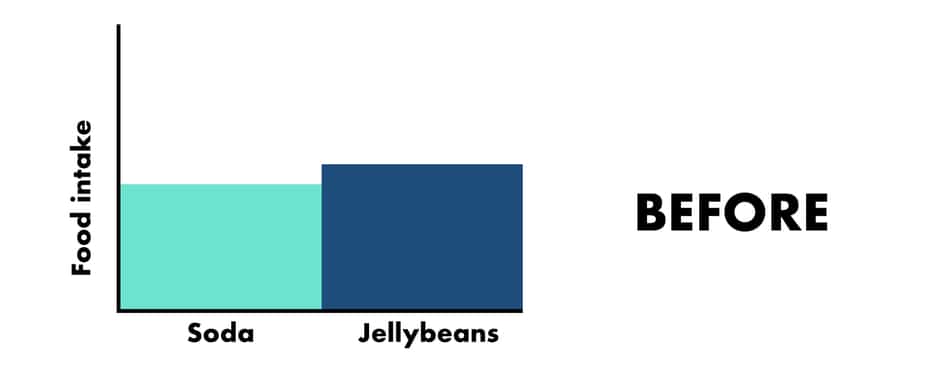
The goal of this study was to see how does extra 450 kcal affect overall food intake. After 4 weeks, groups A lowered overall calorie intake, where group B increase calorie intake (source).
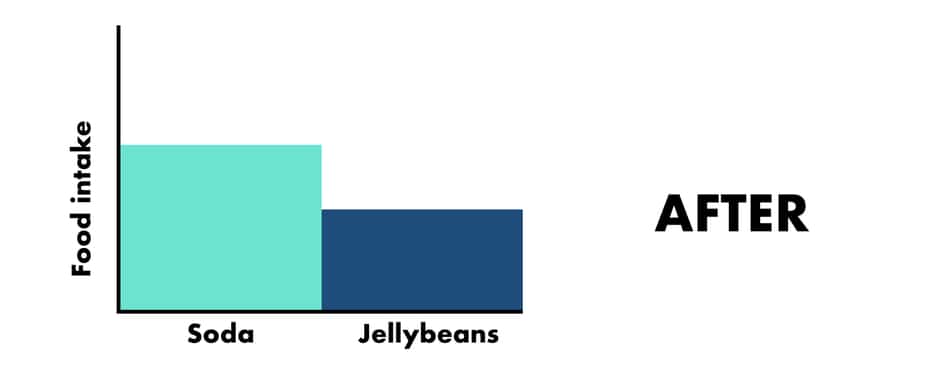
In summary, drinking regular soda leads to an increase in appetite and leads to eating more food in total. Eating jelly beans lead to eating less amount of food.
Go ahead and check out my article to know more about how to stay in calorie deficit without being hungry.
Calorie Deficit And Fat
In general, dietary fat has the weakest effects on satiety when compared with carbs and proteins. Fats increase sensory-specific satiety and palatability, which can make us overeat. But not all fats are created equal. The difference lay in the length of the fatty acid chains.
Medium-chain triacylglycerols (MCT) has higher satiety comparing to long-chain triacylglycerols (LCT). In fact, studies shows that eating small amount of MCT fats leads to decrease in food intake.
A study done by Barbara Rolls from Pennsylvania State University compared 24 females and preloaded them with a sample of LCT or MCT oil before their meal.
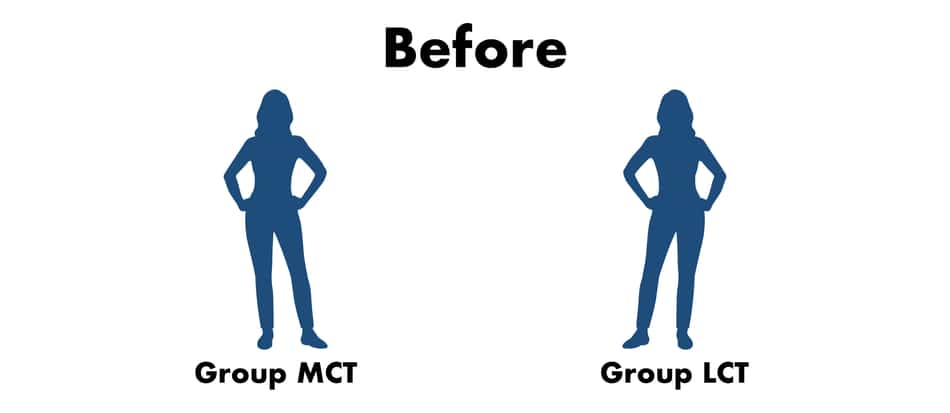
After the ingestion of either MCT or LCT drink, everyone was invited for a buffet-style lunch. The goal of this study was to examine how much impact will have consumption of different types of fats before meals. The results showed that taking in MCT oil reduced overall food intake by 15% (source).
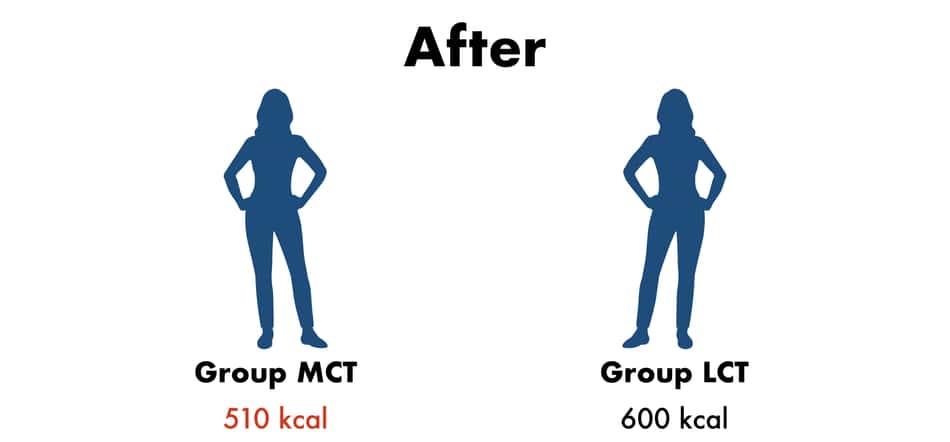
There is more.
A study done on people who were undergoing a very low-calorie diet (VLCD) compared adding MCT oil and LCT oil. During this study, people were eating around 578.4 kcal per day.
All participants lost weight, but the group with MCT oil had significantly better results within the first 2 weeks (source).
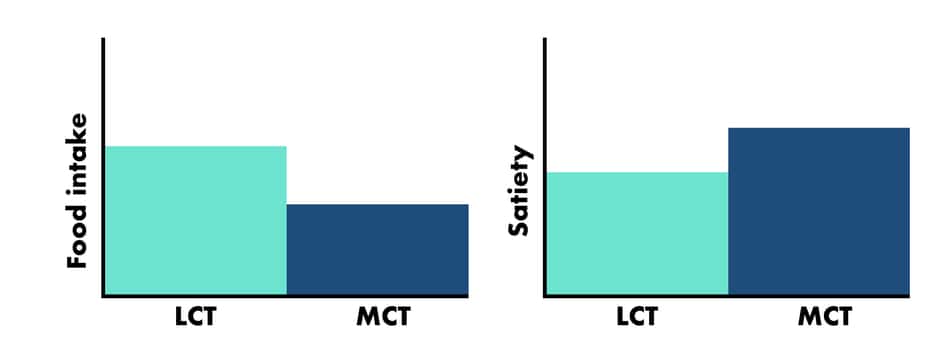
So it turns out that MCT oil has a positive impact on satiety and calorie intake. How you can take advantage of that and use it while doing a calorie restriction?
Simple. Take a spoonful of extra virgin coconut oil in the morning. I’ve noticed that after eating a spoonful of coconut oil in the morning I can suppress my hunger and move my breakfast further on. It’s like doing intermittent fasting. It leads to lowering overall food intake.
Does It Matter What Time You Eat In a Calorie Deficit?
In general, it doesn’t matter what time you eat in a calorie deficit as long as you don’t eat the majority of the food late at night. Late-night eating has an impact on circadian rhythms, insulin resistance, and is associated with higher food intake due to reduced satiety mechanisms through leptin and ghrelin.
It used to be said that we need to eat small and often. Now, there is more research about food timing and it is clear that meal frequency and timing doesn’t really matter as that much.
People who eat 5-6 meals a day can stay lean and fit, as well as people who just eat 1-2 meals a day. The most important is the food composition and total calorie intake.
Here are some of the highlights from the most interesting studies I’ve managed to find on meal frequency and timing.
- A study done by Dr.Kahleova showed that eating one to two meals per day (5-6 hours apart) was associated with a relatively lower BMI, compared with three meals a day (source). This means for the rest of the time (18-19 hours) people were fasting.
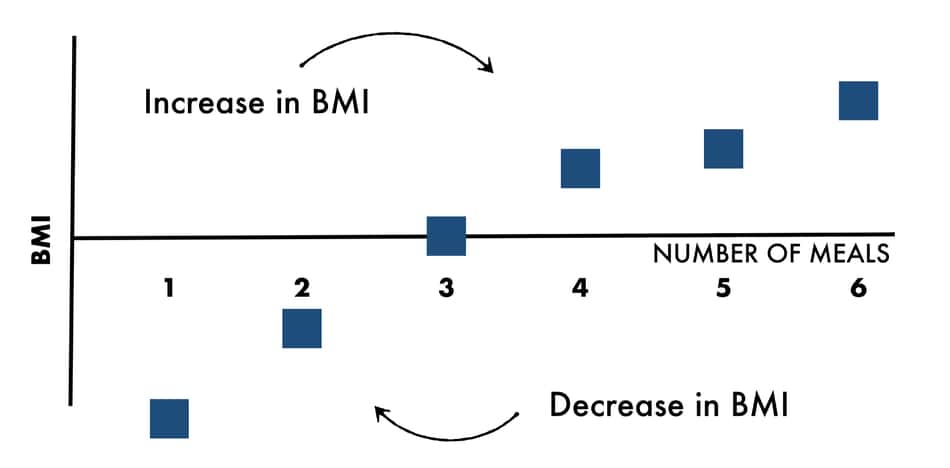
- On the other hand, Dr.Keast showed that snacking is correlated with weight loss and non-snacking with weight gain (source). This study also highlights that television, media, or computer use was positively associated with snacking. Also, women tend to snack more than men.
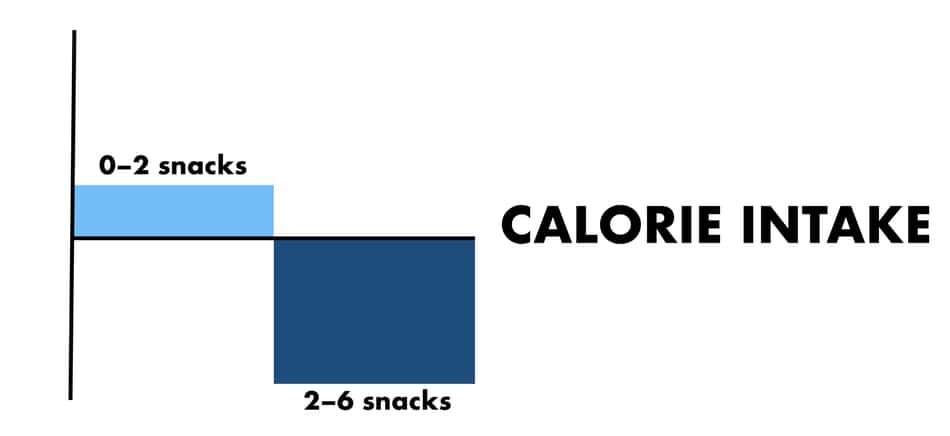
I did several experiments on myself where I’ve compared how my body will feel if I eat small and often versus just one meal a day. My biggest findings were that:
- Eating small and often I tend to lose control of how much I eat in total. I simply don’t know and can’t remember if and what I ate.
- Having a habit of snacking makes me constantly visit the pantry and refrigerator when I’m bored, not when hungry.
- I get out of sync with my hunger signals and can’t really tell if I’m hungry or is this something else.
On the other side, when I’ve experimented with just one meal a day or simply with intermittent fasting I’ve noticed that:
- I eat less food overall as time goes by.
- I can be more productive in the morning.
- I don’t have to stress about counting calories, measuring portions, counting carbs, or thinking about food in general.
- The smell of food is so much stronger
- Food tastes so much better
- If I eat too much in the morning my sleep is disrupted
So what you should do about it?
Experiment yourself. Some people enjoy eating small and often. Others prefer to have 1-2 meals a day. Also, try to avoid large meals at night because they can disturb your sleep and make you more hungry the following day.
Related article: Can calorie deficit cause sleep problems?
How Many Calories Should I Eat To Be In A Deficit?
To be in a calorie deficit you should be eating around 70-80% of your total daily energy expenditure. The easiest way to estimate your calorie needs, multiply your body weight in pounds by activity levels: 10-12 (sedentary), 12-14 (moderately active), and 14-16 (very active).
In the table below you can find the numbers and description of physical activity.
| Activity | Multiply |
|---|---|
| Sedentary | 10-12 |
| Moderate (3-4 x per week) | 12-14 |
| Very active (5-7 x per week) | 14-16 |
So I will show you an example based on a sedentary person who doesn’t move much, works at the desk and weighs around 172 pounds.
- 172 x 10 = 1720 kcal
- 172 x 12 = 2062 kcal
To be in the calorie deficit, he/she should consume somewhere between 1720 and 2062 kcal per day.
Now for someone who is physically active, exercise 5 times per week and weighs 200 pounds.
- 200 x 14 = 2800 kcal
- 200 x 16 = 3200 kcal
To be in the calorie deficit, he/she should consume somewhere between 2800 and 3200 kcal per day.
Of course, non of those estimates are definite. But its a good baseline to establish your calorie needs, if you choose to count calories.
Conclusion
In summary, the easiest way, and I’ve seen it over and over again to stay consistent in the calorie deficit is to load your meals with proteins and fiber-rich foods. This will keep you fuller for longer, lower the hunger, and give you better results.
MCT oil can help you suppress appetite when preloaded before meal or first thing in the morning. Use extra virgin coconut oil.
Having multiple meals or just one single meal is a matter of preference. Instead of relying on recommendations of others, try and experiment yourself.

Brilliant read, thank you for making very clear with data to support. I am attempting to lose weight, and build lean muscle mass on a calorie deficit diet. I struggle to maintain the fat micronutrient in check. I am consistently eating a full diet of 40% fat, 30% protein (above what I need per day based on 1.5 grams per lbs), 30% carbs. Will this get me to my goal mentioned above? Or do I need to intentionally increase the protein intake even higher, and reduce the fat? I guess what am asking is what’s the general percentage breakdown that’s ideal to lose wight, build lean mass, while being on calorie deficit with 4-5 days of being active (lifting weights and soccer) per week.